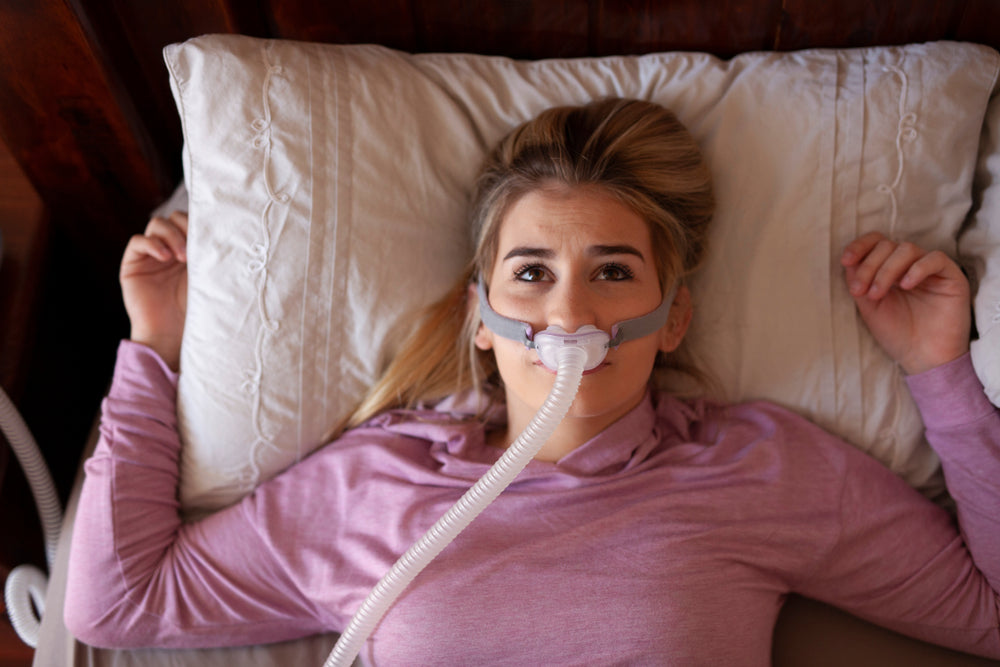BiPap vs CPAP machines for sleep apnea
If you or somebody in your life has (or you suspect they may have) sleep apnea, then your research may have led you to discover both CPAP and BiPap machines as potential solutions to your sleepless nights. Sleep apnea is a serious disorder that causes breathing to stop throughout the night. Not only does this cause a range of health problems, but it often also affects the quality of sleep for the person with sleep apnea and for anybody else sleeping in the bedroom.
With that said, obstructive sleep apnea is a disorder you want to treat asap, so you are on the right track to research which method will work best for you. Those who suffer from sleep apnea will need machine assistance to ensure they are consistently breathing throughout the night. This machine assistance will help treat current symptoms while preventing further complications that can arise from untreated sleep apnea.
By understanding the difference between the two machines, you will be able to discover which machine is better suited for you or your loved one. So what exactly is the difference between CPAP and BiPap machines? And which is right for you?
CPAP and BiPap: The rundown
First of all - what do the acronyms stand for?
CPAP: Continuous Positive Airway Pressure
BiPap: Bilevel Positive Airway Pressure
Both CPAP and BiPap machines help monitor the breathing of those with sleep apnea throughout the night and release pressurised air to prevent respiratory failure and ensure a night of safe sleep.
These two forms of therapy are quite similar in terms of their functionality and design, as they are both non-invasive treatments for sleep apnea. Similarly to CPAP, BiPap treatments provide users with an easier way to breathe during sleep by preventing the airway from collapsing, stopping the acute respiratory failure "episodes" throughout the night.
CPAP machines work by delivering constant pressurised air through a mask and an attached tube into the wearer's airway while they sleep. This consistent flow of air keeps the airway open throughout the night, which stops the wearer gasping for air and improves their sleep.
About the size of a lunchbox, BiPap machines and CPAP machines include a face mask, nasal mask, or nasal plugs and a tube that attaches to the device itself. The machine then releases air through the tube. The air will enter your airway through your mask or plugs.
What makes BiPap different?
What is the difference of a BiPap machine? Some people find a CPAP machine to be uncomfortable to breathe against due to the constant singular pressure of the air released. Especially if the air pressure is set to a higher setting, exhaling can be difficult. This is where the BiPap machine differs. BiPap machines reduce the pressure when the wearer exhales, making it easier and more comfortable to breathe for those who previously found the CPAP difficult.
So the critical difference between CPAP and BiPap is that while CPAP delivers a continuous pressure of air, BiPap reduces the pressure level for the exhaling breath.
While CPAP has one setting for air pressure, a BiPap machine like the ResMed Lumis 100 VPAP S has two settings; one for the inhale and one for the exhale. Aside from BiPap being a more comfortable option for those who find breathing difficult with one setting, BiPap is also recommended for those who may require more breathing assistance. For example, in patients with heart and lung diseases, such as congestive heart failure, a health professional may prescribe BiPap to assist.
The next step to a peaceful night's sleep
Everybody reacts differently to the various forms of treatments available for sleep apnea. Some patients are very comfortable with both CPAP treatment and others with BiPap. Finding the right solution for your individual needs is essential in treating sleep apnea. We always recommend that all customers come into the store and speak to one of our expert consultants to ensure that we can cater to your needs after hearing all the information.
BiPap and CPAP devices aren't one size fits all, and we want to ensure you are happy with your purchase for years to come. If you are ready to take the next step in finding a long-term solution for sleep apnea, book in with an expert today and find yourself having a better night's sleep in no time.


